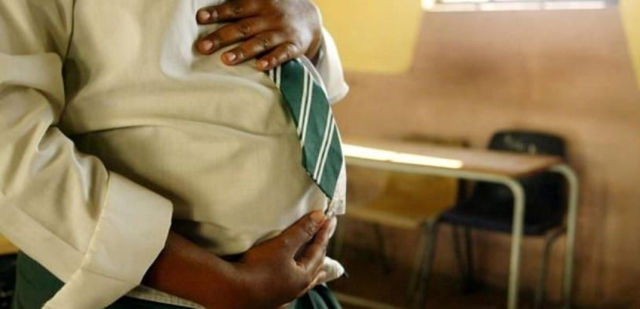
Kampala, Uganda | THE INDEPENDENT | A government decision to allow breastfeeding teenagers in school has uncovered a deep clash between social norms, religious beliefs, and human rights in Uganda.
Following an increase in teen pregnancies during the recent COVID-19 lockdown that left learners at home for close to two years, the Ministry of Education advised schools to allow all girls back to school regardless of whether they were pregnant or breastfeeding. The move is aimed at eliminating school dropouts among the girl child.
But the policy was challenged by the Church of Uganda, when Mukono Diocese Bishop James William Ssebaggala directed teachers in Church-founded schools to block pregnant or breastfeeding girls from their institutions. This position he said, was meant to ensure that the Church does not contradict its teaching by allowing unmarried learners to return to school.
While many others have not spoken out, a visit to schools by URN shows a deep controversy on the implementation of the policy, as many school administrators are holding onto deep-rooted societal norms and beliefs, stigma and church inclinations.
Patrick Nyonyintono, the Director of Kann High School says that although he sympathizes with the girls who were impregnated during the lockdown, the school is finding difficulty in the arrangement to let such learners return to school. He says it becomes difficult to teach others the importance of purity when even those who go against it are pampered.
Nyonyintono’s argument is derived from the Ugandan cultural settings where pre-marital pregnancy among girls is stigmatized both in school and in communities mainly on moralistic grounds. In such settings, girls who get pregnant while still in school are often victimized, seen as a waste, a curse for their families, a bad omen and a gone case.
He advises that the government should declare a dead year for pregnant learners and allow them back after breastfeeding. Nyonyintono says that for now, his only option is to refer such learners to public schools within the area.
Over the years, school careers of girls are cut short because of pregnancy either by the girls withdrawing themselves from school or through expulsion upon conception. Before the lockdown, almost all schools were expelling pregnant girls and child mothers, and often they failed to return and complete their education.
Asad Kirabira, the chairperson for the National Private Educational Institutions Associations in Uganda says that allowing pregnant learners in schools will be a contradiction to their own preaching.
He explains that among the key issues the schools preach to the learners is desisting from anything that can lead them into sex before marriage. He says they sympathize with the children who were impregnated but they find it not worthy to let them mix with other learners before they give birth.
The education ministry guidelines and policy on pregnant learners encourages schools to carry out periodical pregnancy check-ups, however, emphasizing support in form of counselling and continued education for all the learners discovered to be pregnant.
Muhammad Makumbi, the headteacher of Kisaasi College School says the school is following the guideline and will carry out a medical check-up to identify and support any student found pregnant. Similarly, the headteacher of Wampewo Ntake SS, Mike Sekaggo says the school is organizing its routine medical checkups for learners who are just returning from their longest holiday ever.
But human rights activists maintain that the right to education is a fundamental human right, where every individual irrespective of race, gender, nationality, ethnic or social origin, religion or political preference, age or disability, is entitled to equitable and successful completion of education. This they say should be the guiding principle even for those who were disadvantaged by the lockdown and fell prey to men who made them pregnant.
*****
URN
 The Independent Uganda: You get the Truth we Pay the Price
The Independent Uganda: You get the Truth we Pay the Price





